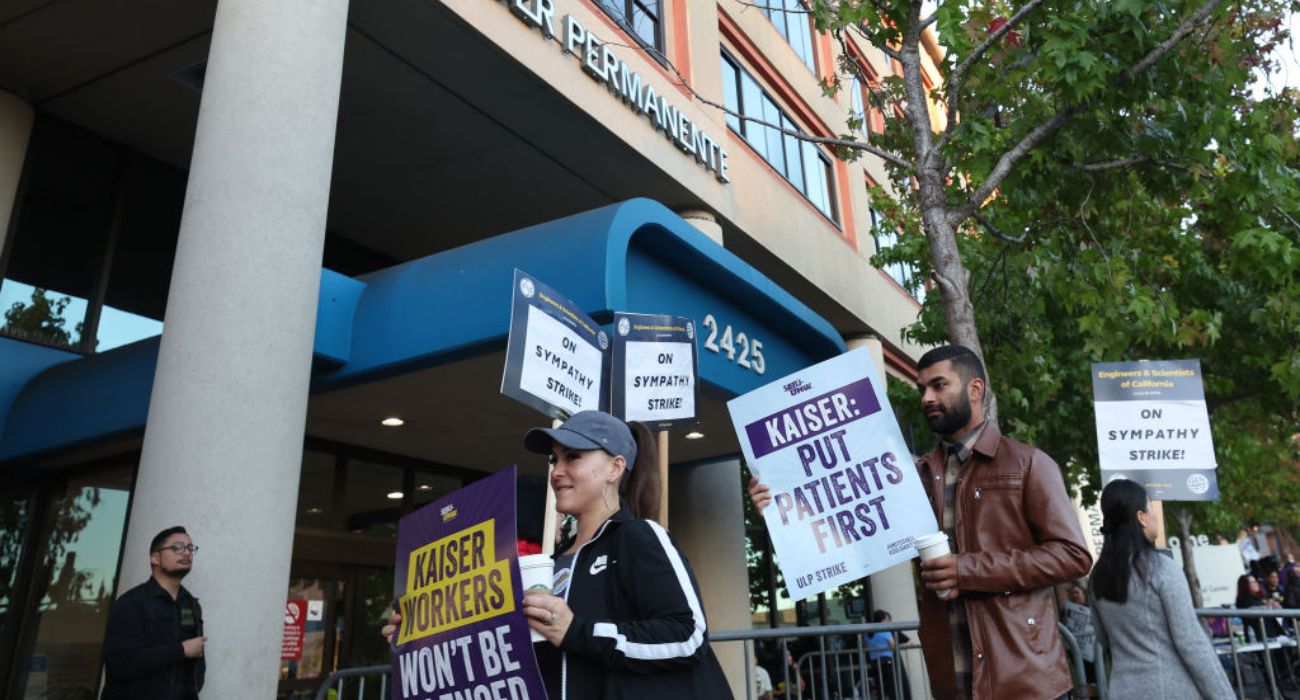An unprecedented healthcare workers’ strike began Wednesday morning, affecting facilities throughout the United States.
Tens of thousands of healthcare workers have staged walkouts and formed picket lines, calling for leaders to address staffing shortages and improve wages.
“They’re not listening to the frontline healthcare workers,” said Mikki Fletchall, a licensed vocational nurse from California, according to WFAA. “We’re striking because of our patients. We don’t want to have to do it, but we will do it.”
Fletchall works for Kaiser Permanente, the healthcare provider of nearly 13 million Americans.
Organized by the Coalition of Kaiser Permanente Unions, the three-day strike could mobilize over 75,000 workers based in California, Colorado, Oregon, and Washington. The strike in Virginia and Washington, D.C., is scheduled to last just one day.
While doctors are not participating in the strike, nurses, home health aides, ultrasound sonographers, and technicians in an array of departments are — making it the largest healthcare strike in U.S. history.
It also comes amid a series of other high-profile strikes occurring recently. These include that of United Auto Workers, which has mobilized 13,000 strikers asking for pay raises of up to 40%, and the Writers Guild of America strike that went on for 148 days before reaching a deal with studios.
Hospitality workers have also hinted at a possible strike, with Culinary Workers Union Local 226 — which represents over 50,000 in Las Vegas — voting to authorize a walkout in late September over similar grievances of allegedly low pay and excessive workload.
Kaiser affirmed that despite the strike of its workers, its hospitals and emergency departments will remain open.
The care consortium also claimed it was striving to reach an agreement between management and union representatives. A new contract has not been agreed to between the coalition and Kaiser since 2019.
Specifically, the coalition has urged Kaiser to integrate 10,000 new healthcare professionals into its ranks to adequately fill the prevailing vacancies and mitigate burnout. It also wants Kaiser workers to receive a $25 hourly minimum wage and increases of 7% each year in the first two years and 6.25% each year in the two years afterward.
Kaiser countered earlier this week by offering state-by-state minimum wages of $21 to $23 an hour and across-the-board wage increases of at least 12.5% over four years.
“Our focus, for the dollars that we bring in, are to keep them invested in value-based care,” explained Kaiser executive Michelle Gaskill-Hames.
She added that the company pays its workers better than its competitors despite the crunch felt by the industry as a whole.






